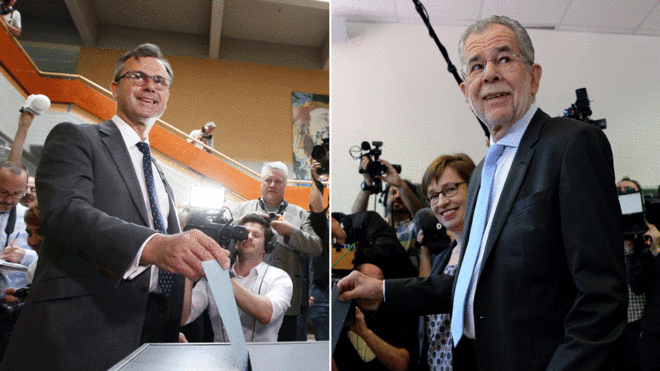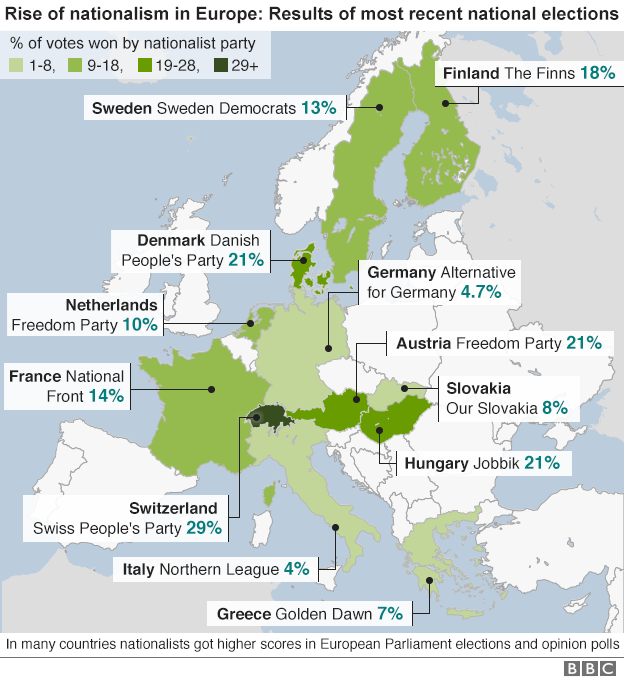Austria presidential vote: Run-off race too close to call

Partial results in Austria's run-off presidential election, which pitches the far right against an independent, suggest it is too close to call.
Norbert Hofer of the Freedom Party and Alexander Van der Bellen were each on 50%, with 94% of the vote counted.
For the first time since World War Two, both the main centrist parties were knocked out in the first round.
A key issue in the campaign was Europe's migrant crisis, which has seen asylum-seeker numbers soar.
About 90,000 people claimed asylum in Austria last year, equivalent to about 1% of the Austrian population, and the Freedom Party ran an anti-immigration campaign.
The presidency is a largely ceremonial post, but a Hofer victory could be the springboard for Freedom Party success in the next parliamentary elections, scheduled for 2018.
The presidents of the European Commission and the European Parliament, Jean-Claude Juncker and Martin Schulz, have both expressed concern over a Hofer victory.
Austria is faced with a stark choice for its head of state: a Green Party professor, Alexander Van der Bellen, or Norbert Hofer of the far-right Freedom Party — a soft-spoken, charismatic gun enthusiast who won a decisive victory in the first round of voting in April.
Support for the Freedom Party has risen because of deep frustration with the established parties and, more recently, because of fears about the migrant crisis.
Right-wing parties are gaining strength in a number of EU countries. European leaders will be watching the result closely.
The latest, partial results have a margin of error of 0.9 percentage points.
Postal ballots, which may prove crucial in such a close race, will only be tallied on Monday.
In the first round, Mr Hofer secured 35% of the votes, while Mr Van der Bellen polled 21%.
The two rivals had engaged in an angry TV debate earlier in the week, described as "political mud-wrestling" by commentators.
Vying to lead Austria
Norbert Hofer
Age: 45
Background: Aeronautical engineer
Politics: Far-right Freedom Party
Campaign soundbite: "To those in Austria who go to war for the Islamic State or rape women — I say to those people: 'This is not your home'"
Alexander Van der Bellen
Age: 72
Background: Economics professor
Politics: Former Green Party leader
Campaign soundbite: "I've experienced how Austria rose from the ruins of World War Two, caused by the madness of nationalism."
Political upset
Such was the political shock at the far right's first-round win that the Chancellor (prime minister), Werner Faymann, resigned after losing the support of his Social Democratic party colleagues.
The Social Democrats and the People's Party have governed Austria for decades, either alone or in coalition.
At the last general election in 2013, they together won just enough votes to govern in a "grand coalition".
Incumbent President Heinz Fischer, 77, could not run again after two terms in office.
Политика конфиденциальности | Правила пользования сайтом










